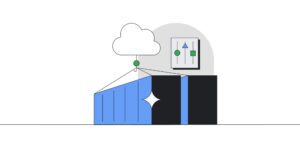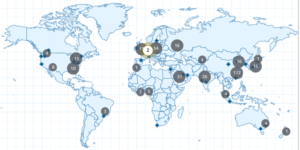[ad_1]

In July 2020, we introduced our aim to remove our dependence on diesel gasoline for backup energy in our datacenters by 2030. That is along with our dedication to having a 100 p.c provide of renewable power procured for our datacenter operations by 2025. Dependable backup energy is important to our buyer promise—delivering extremely accessible, dependable, and scalable cloud providers. Many essential industries, governments, and establishments rely on the Microsoft cloud to assist important operations, even when occasions reminiscent of excessive climate interrupt the first power provide.
Turbines at datacenters, most frequently powered by petroleum-based diesel, play a key position in delivering dependable backup energy. Every of those mills is used for no quite a lot of hours a 12 months or much less at our datacenter websites, most frequently for routine upkeep or for backup energy throughout a grid outage. Diesel gasoline accounts for lower than 1 p.c of Microsoft’s general emissions, however discovering options to cut back reliance on conventional diesel fuels represents a considerable contribution to the expertise pathways needed for deep decarbonization. Probably the most rapid alternative to cut back the usage of conventional diesel fuels is to validate and implement different, lower-carbon gasoline sources for our mills.
At the moment we’re saying that Microsoft’s datacenter area in Sweden, which can be accessible to clients later this 12 months, would be the first to make use of lower-carbon renewable gasoline for backup energy. The datacenter mills run on Preem Evolution Diesel Plus, the world’s first Nordic Eco-labelled gasoline, which comprises a minimum of 50 p.c renewable uncooked materials, and practically an equal discount in web carbon dioxide emissions in contrast with commonplace fossil diesel blends. Microsoft has collaborated with each Preem and Caterpillar, a world-leading supplier of backup gensets, to make sure that the Evolution Diesel Plus product gives the identical technical efficiency as conventional fuels, with fewer web emissions. Using Evolution Diesel Plus at Microsoft datacenters in Sweden is a step on the trail towards the business and technological improvements needed for cleaner, 100 p.c renewable artificial fuels relevant for the decarbonization of hard-to-abate industries.
Turbines present probably the most dependable supply of backup energy on a worldwide scale—however they don’t seem to be the one supply for backup energy. We’re innovating and piloting different backup energy sources in our datacenter areas, which may sooner or later present viable replacements to mills. Batteries already provide short-term backup energy wants, filling the roughly 30-second hole between a possible outage on the grid and the time it takes to energy up the diesel mills. Sooner or later, batteries with an extended length may exchange the position diesel mills play right this moment. With TOTAL, we not too long ago introduced a collaboration as strategic companions to evaluate the long-term feasibility of deploying massive batteries as backup energy for essential infrastructure and persevering with analysis and improvement on this space.
Lastly, we’re waiting for how we are able to supply viable inexperienced power for backup energy by way of hydrogen gasoline cells. Final 12 months, we introduced a worldwide first—hydrogen gasoline cells powering a row of datacenter servers for 48 consecutive hours. This profitable pilot gives a proof of idea for supporting backup energy wants that may very well be carried out as soon as batteries attain their capability.
On the trail to 2030, we’re persevering with to innovate and companion to create and implement viable options to remove dependency on conventional diesel fuels. We look ahead to sharing extra progress on this journey alongside the way in which.
[ad_2]
Source link





